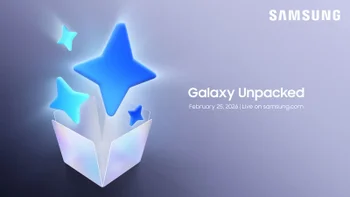Seeking big name apps, Huawei offers developers a larger slice of the pie

After the U.S. put Huawei on the entity list last May for being a threat to national security, the Chinese manufacturer was banned from accessing the state-side supply chain it spent $11 billion on in 2018. One of the first American firms to respond to the ban was Google. Losing the ability to license Google Mobile Services cost Huawei the right to have its phones powered by the Google version of the open-source Android operating system. It also means that the company's new phones can not run Google's core Android apps like the Play Store, Gmail, Search, Maps, Drive and more.
The inability to run Google's apps on its phones didn't hurt Huawei in China where the government has banned most of these apps anyway. However, the lack of Google apps on Huawei's international models surely has had a negative impact on sales outside of the company's home market. Still, Huawei did manage to deliver approximately 240 million units last year thanks to huge domestic support from Chinese consumers swept up in a tide of patriotism. That allowed Huawei to overtake Apple to become the world's second-largest smartphone manufacturer in 2019.
Huawei is looking to build its own ecosystem
Without access to Google Mobile Services, Huawei was forced to create its own ecosystem. Huawei Mobile Services will launch with the upcoming P40 series and includes the company's AppGallery app storefront. In an effort to attract more app developers to AppGallery, Huawei has announced (via XDA) a Preferential Policy that gives developers a bigger slice of the revenue pie generated by their apps. We should point out that the fine print reveals that only revenue generated from purchases made outside of mainland China will be eligible for the Preferential Revenue Share.

Huawei will give developers who sign a two-year contract a larger cut of revenues generated by their apps
Both Google and Apple take a 30% cut of in-app revenue and subscriptions, although that percentage declines for some subscriptions over time. Huawei, too, takes as much as a 30% cut of most of the app revenue generated by AppGallery. But developers who sign a 24-month pact with Huawei prior to June 30, 2020, will receive a larger cut from the money collected from paid apps and in-app purchases. The Preferential Revenue Share agreement kicks in on the first day of the next month following the acceptance of the offer. Developers of education apps will receive every penny earned by their apps over the first 12 months and 90% over the following 12 months. Once the 24 months expires, Huawei's Standard Revenue Share goes back into effect which means education apps earn their developers 80% of the revenue they create.
Developers of gaming apps, normally the recipient of 70% of revenue brought in by their games, will receive 85% of the take if they sign the two-year deal with Huawei. Apps that belong to all other categories will earn developers 100% of the revenue they bring in over the first 12 months and 85% over the second 12 months of the contract. Once the two years are up, the standard terms (70% to developers) will apply.
Will the bigger cut, even if it is only for 24 months, be enough to get developers to write their apps? Some popular apps like Snapchat and Reddit are available from the AppGallery, but there are still a number of big-name apps absent from the storefront including social media sites like Twitter and Facebook.
There is nothing on the horizon that would suggest that the U.S. will eventually take Huawei off of the entity list. Google has recently said that it wants to work with Huawei again, but is prevented to do so because of the ban. Eventually, Huawei could turn HMS into a viable replacement for Google Mobile Services. The U.S. supply chain ban resulted in a flesh wound to the manufacturer at best. After Huawei recovers, the loser will be those U.S. tech companies that are no longer allowed to do business with the second-largest smartphone manufacturer in the world.
Follow us on Google News












Things that are NOT allowed:
To help keep our community safe and free from spam, we apply temporary limits to newly created accounts: